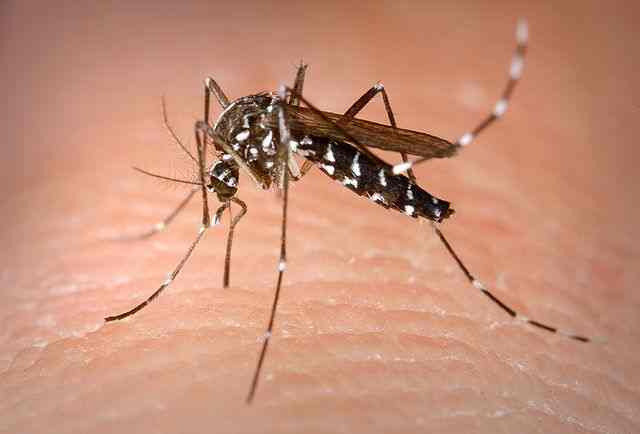Abdali Hospital - 25th floor - Amman - Jordan

• West Nile virus is most commonly spread through the bite of an infected mosquito.
• Symptoms include fever, headache, body aches, vomiting, diarrhea, or rash.
• There are no vaccines to prevent or medicines to treat West Nile virus disease (West Nile) in people.
• You can reduce your risk by taking steps to prevent mosquito bites.
Introduction
West Nile (WN) virus, a member of the Japanese encephalitis virus antigenic complex, can lead to a wide range of clinical symptoms from asymptomatic disease to severe meningitis and encephalitis.
Symptoms
- No symptoms in most people. Most people (8 out of 10) infected with West Nile virus do not develop any symptoms.
- Febrile illness (fever) in some people. About 1 in 5 people who are infected develop a fever with other symptoms such as headache, body aches, joint pains, vomiting, diarrhea, or rash. Most people with febrile illness due to West Nile virus recover completely, but fatigue and weakness can last for weeks or months.
- Serious symptoms in a few people. About 1 in 150 people who are infected develop a severe illness affecting the central nervous system such as encephalitis (inflammation of the brain) or meningitis (inflammation of the membranes that surround the brain and spinal cord).
• Symptoms of severe illness include high fever, headache, neck stiffness, stupor, disorientation, coma, tremors, convulsions, muscle weakness, vision loss, numbness and paralysis.
• Severe illness can occur in people of any age. However, people over 60 years of age are at greater risk for severe illness if they are infected (1 in 50 people). People with certain medical conditions, such as cancer, diabetes, hypertension, kidney disease, and people who have received organ transplants, are also at greater risk.
• Recovery from severe illness might take several weeks or months. Some effects might be permanent.
• About 1 out of 10 people who develop severe illness affecting the central nervous system die.
Transmission
- West Nile virus is most commonly spread to people by the bite of an infected mosquito.
- Mosquitoes become infected when they feed on infected birds. Infected mosquitoes then spread West Nile virus to people and other animals by biting them.
- In a very small number of cases, West Nile virus has been spread through:
• Exposure in a laboratory setting
• Blood transfusion and organ transplant
• Mother to baby, during pregnancy, delivery, or breast feeding
- West Nile virus does not spread:
• Through coughing, sneezing, or touching
• By touching live animals
• From handling live or dead infected birds.
-Avoid bare-handed contact when handling any dead animal.
- If you are disposing of a dead bird, use gloves or double plastic bags to place the carcass in a garbage can.
- Through eating infected animals, including birds. Always follow instructions for fully cooking meat.
Diagnosis
If you think you or a family member might have West Nile, talk with your health care provider.
• Healthcare providers diagnose West Nile virus infection based on:
• Signs and symptoms
• History of possible exposure to mosquitoes that can carry West Nile virus
• Laboratory testing of blood or spinal fluid
• Your healthcare provider can order tests to look for West Nile virus infection or other infections that can cause similar symptoms.
• Rash appears in approximately 25 to 50 percent of patients with WN fever, the rash is typically found on the chest, back, and arms,
Persistent symptoms — After the acute infection, many patients with WN virus infection experience persistent symptoms, such as fatigue, memory impairment, weakness, headache, and balance problems, some of which can be documented by neurocognitive testing .
Treatment
- Supportive care — Treatment of WN virus infection is primarily supportive.
- Supportive therapy may include pain control for headaches; if nausea and vomiting are present, antiemetic therapy and rehydration may be beneficial.
Prevention
Prevention tips
-West Nile virus is spread to people through the bite of an infected mosquito. Mosquitoes bite during the day and night.
-There are no vaccines or medicines to prevent West Nile.
The best way to prevent West Nile is to protect yourself from mosquito bites;
• Use insect repellent
• Wear long-sleeved shirts and pants
• Treat clothing and gear
• Take steps to control mosquitoes indoors and outdoors
Reference: upto date , Centers for Disease Control and Prevention